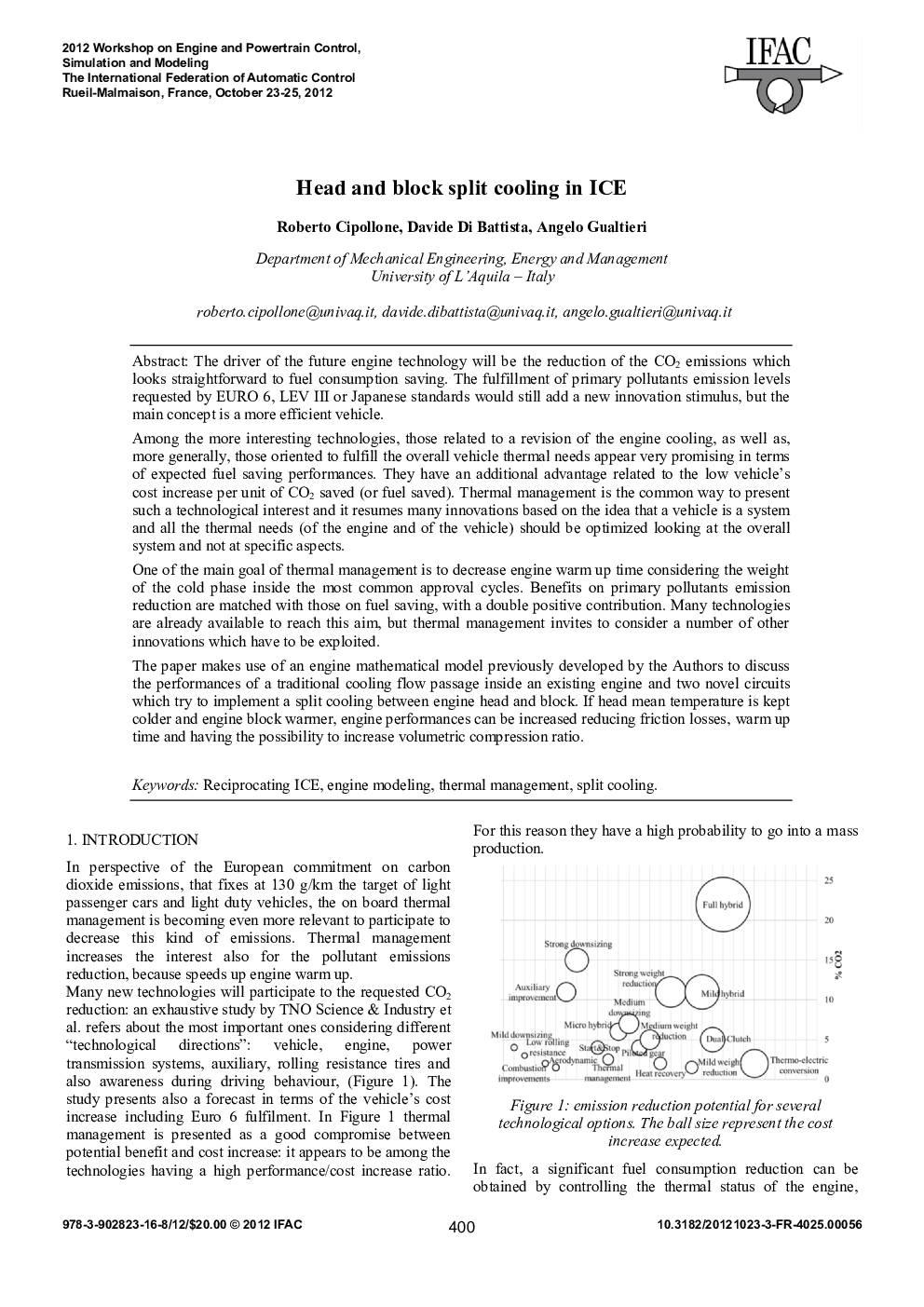| کد مقاله | کد نشریه | سال انتشار | مقاله انگلیسی | نسخه تمام متن |
|---|---|---|---|---|
| 713843 | 892176 | 2012 | 8 صفحه PDF | دانلود رایگان |

The driver of the future engine technology will be the reduction of the CO2 emissions which looks straightforward to fuel consumption saving. The fulfillment of primary pollutants emission levels requested by EURO 6, LEV III or Japanese standards would still add a new innovation stimulus, but the main concept is a more efficient vehicle.Among the more interesting technologies, those related to a revision of the engine cooling, as well as, more generally, those oriented to fulfill the overall vehicle thermal needs appear very promising in terms of expected fuel saving performances. They have an additional advantage related to the low vehicle's cost increase per unit of CO2 saved (or fuel saved). Thermal management is the common way to present such a technological interest and it resumes many innovations based on the idea that a vehicle is a system and all the thermal needs (of the engine and of the vehicle) should be optimized looking at the overall system and not at specific aspects.One of the main goal of thermal management is to decrease engine warm up time considering the weight of the cold phase inside the most common approval cycles. Benefits on primary pollutants emission reduction are matched with those on fuel saving, with a double positive contribution. Many technologies are already available to reach this aim, but thermal management invites to consider a number of other innovations which have to be exploited.The paper makes use of an engine mathematical model previously developed by the Authors to discuss the performances of a traditional cooling flow passage inside an existing engine and two novel circuits which try to implement a split cooling between engine head and block. If head mean temperature is kept colder and engine block warmer, engine performances can be increased reducing friction losses, warm up time and having the possibility to increase volumetric compression ratio.
Journal: IFAC Proceedings Volumes - Volume 45, Issue 30, 2012, Pages 400-407